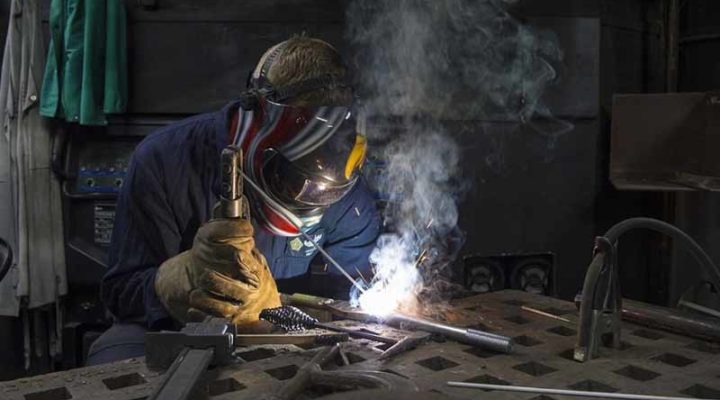
Are you new to welding? If you’re starting out as a hobby welder you’ll need to invest in a few key tools for your garage or workshop to help you get off to the best possible start.
If you aren’t sure where, to begin with stocking up your toolbox, here is some useful advice to get you started.
A Welding Helmet
The very first thing you’re going to need is a welding helmet, preferably an auto-darkening one. You simply can’t begin any welding project without one as it simply wouldn’t be safe. Choose a user-friendly model which allows you plenty of vision of your workpiece.
A Welder
Yes, you’re going to actually need a welder to get started! It’s obviously a must have tool in your shop! There are several types of welder on the market so you’ll need to choose the best one to suit your needs. Whether you prefer a MIG or a TIG welder, you can see our recommendations on Ratemywelder.com.
Welding Magnets
You’ll need welding magnets in your workshop too. They are incredibly versatile pieces of equipment which allow you to hold pieces easily in place as well as create angles of 90 degrees with any project. They’re especially useful if you’re welding frames. They’re available in numerous sizes so you can find ones to suit both small and large projects, but you’ll need a few of them.
A Speed Square
This is another useful tool as it enables you to get 90 degree cuts or 45 degree angles rapidly. Simple to use the tool, you’ll find that you won’t be able to do without it once you’ve used one once.
Sheet Metal Gauge
You’ll probably need to know how thick a piece of metal is at some point when working on a welding project, and that’s where your sheet metal gauge will come into play. It’ll help you to use your chart which tells you the setting you require for different thicknesses of metal – after all, it’s virtually impossible to tell at a glance how thick your piece of metal is.
A Metal File
Although you might not think a metal file is an absolute essential for your workshop, you’ll find it’s very useful when you’re finishing any project. Metal burrs can still be found on your finished project and you have to get rid of them. While you could use a grinder, that isn’t ideal if you want fine details, so a metal file is a solution – even better, it’s cheap!
Welding Clamps
Welding clamps are another must-have for your workshop. You’ll require a minimum of 10 to ensure the pieces are fitting together tightly before you’re able to weld them into place.
Welding Gloves
You’re certainly going to need a pair of good quality welding gloves to prevent nerve damage and burns. The thickest welding gloves are often best for beginners as they allow you to pick up even very hot metal for a couple of seconds without any risk of getting burned. If you’ll be TIG welding, however, you might prefer a pair of thinner leather gloves since they allow you to get a precise hold onto your welding torch.
A Metal Brush
If you’re are going to be using a process which creates slag, you’ll require a metal brush. This is especially the case if you’re using a flux core arc welder or stick welder.
MIG Pliers
Many beginners start out with MIG welding since it’s easier to learn but if you’re going to be starting out with this type of process, you’ll require a pair of MIG pliers in your workshop. Easy to use, they also serve numerous functions. You can use them for removing hot nozzles, removing contact tips, and clipping wires.
Soapstone
Soapstone is an incredibly useful marking tool if you’re working with pieces of metal. It is capable of withstanding the very high heat produced by cutting torches and welders. Alternatively, you could get a marker which serves the same purpose.
An Angle Grinder
You’re definitely going to need an angle grinder. In fact, you could benefit from having two. Once can be used for cutting and the other one for grinding.
So, there you have it – a few key tools to make sure you have in your garage before you embark on your first hobby welding project!
Leave a Reply